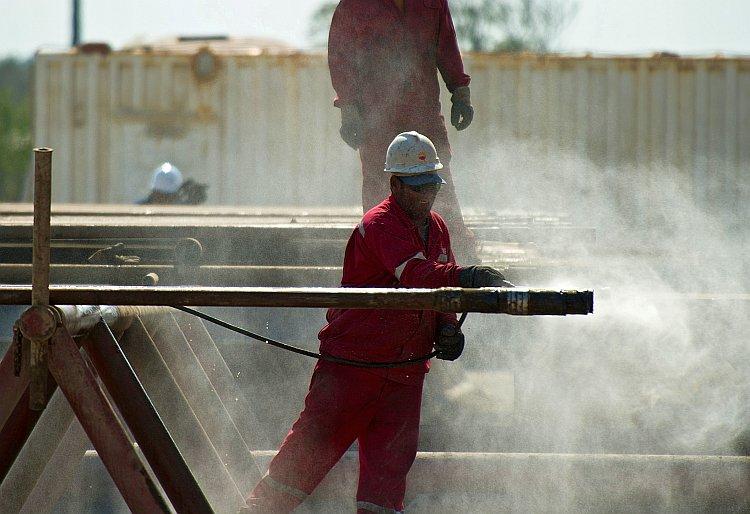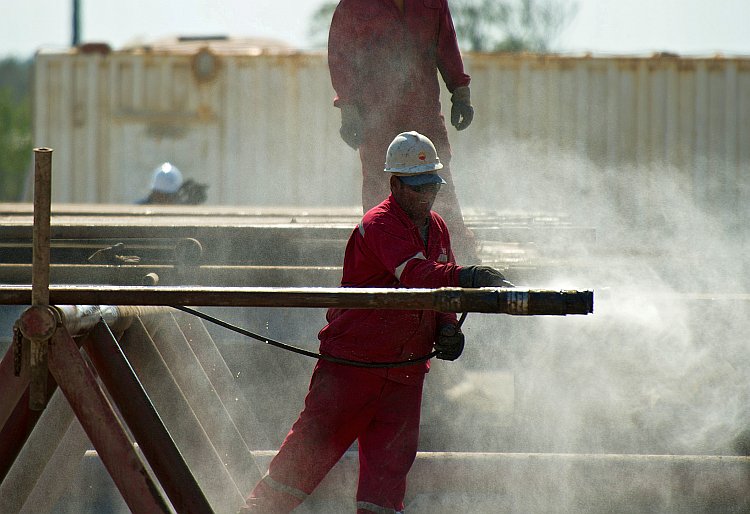As the China-built, Cuba-operated Scarabeo 9 water oil rig has started drilling for oil off the coast of Cuba, experts based in two Florida universities and others are concerned an oil spill could cause catastrophic damage to the coast from South Florida to the Carolinas.
Researchers at Nova Southeastern University (NSU) and Florida International University (FIU) are researching steps to prepare for the risk of a spill, and develop and implement a long-term response plan.
Richard E. Dodge, Ph.D., dean of NSU’s Oceanographic Center, John R. Proni, Ph.D., executive director of FIU’s Applied Research Center and other experts gave their recommendations to the House Committee on Transportation and Infrastructure last week.
“This is a very serious issue to the U.S.,” said Dodge. “There are gaps in prediction and should there be an oil spill, we need to know how to handle it, take mitigation measures and be ready. Without the information, we'd be reactive instead of proactive.”
Additional risks from the rig include drilling-related pollutants affecting shallow and deep ecosystems near the coasts.
The Department of Interior shared its preliminary analysis on the safety of Scarabeo 9. “Personnel from the U.S. Coast Guard and the U.S. Department of the Interior’s Bureau of Safety and Environmental Enforcement (BSEE) completed a review of the mobile offshore drilling unit Scarabeo 9,” said a January joint statement from the Coast Guard and BSEE.
The agency found that while the platform did meet certain international safety standards, the inspection was not as thorough as would be done under U.S. oversight.
The review was “consistent with U.S. efforts to minimize the possibility of a major oil spill, which would hurt U.S. economic and environmental interests.” Problems were, however, observed with welds on the rig, and wiring for safety systems; problems that would have to be resolved if operating in U.S.-controlled Gulf waters, BSEE Gulf of Mexico Director Lars Herbst told a House panel last week.
Florida Congresswoman Ileana Ros-Lehtinen, whose district includes the Florida Keys (near to where the Scarabeo 9 is operating), expressed concerns over the leverage Cuba has gained by developing its own oil exploration and drilling, and possible impact to the region. “The issue at hand is a state sponsor of terrorism is poised to achieve a tremendous economic boon by entering the oil business and potentially endangering U.S. waters to boot,” Ros-Lehtinen said in a statement.
The United States does not have diplomatic relations with Cuba, or any authority over the oil rig.
The south Florida area contains 84 percent of the coral reef ecosystem in America, according to a statement from NSU, and accounts for 3.4 million jobs and 45 percent of the $587 billion contribution to Florida’s GDP generated by coastal and ocean economic activity. Coral reefs are already at risk from pollution, overfishing, disease, development, and ship groundings, according to research data.
Research, planning and preparation activities should be taken in advance so that authorities can effectively respond, according to the researchers.
In developing a plan and response to the potential oil spill threat, the most important recommendations include the following, according to the study: Florida needs an oil spill early warning monitoring system utilizing acoustic, geophysical, satellite, and other methods; before a spill occurs, experts should make a baseline assessment of the coral reefs and associated ecosystems in the potential spill path to prioritize areas for response and set restoration targets.
In addition, physical oceanography and ocean current movements from the Yucatan Channel to the southeast and east coasts of Florida should be charted. Oil toxicity studies should be done to develop risk assessments. Models to predict spill movement, models to predict ecological and biological effects, and models to assess the potential impact of various strategies would help officials make the most effective response to a spill, according to the study.
Dodge added, “We’ve had lots of discussion with agencies and there is interest. We hope that some of the agencies will buy into this idea. Funding is a issue because of the economic downturn in the U.S.”






